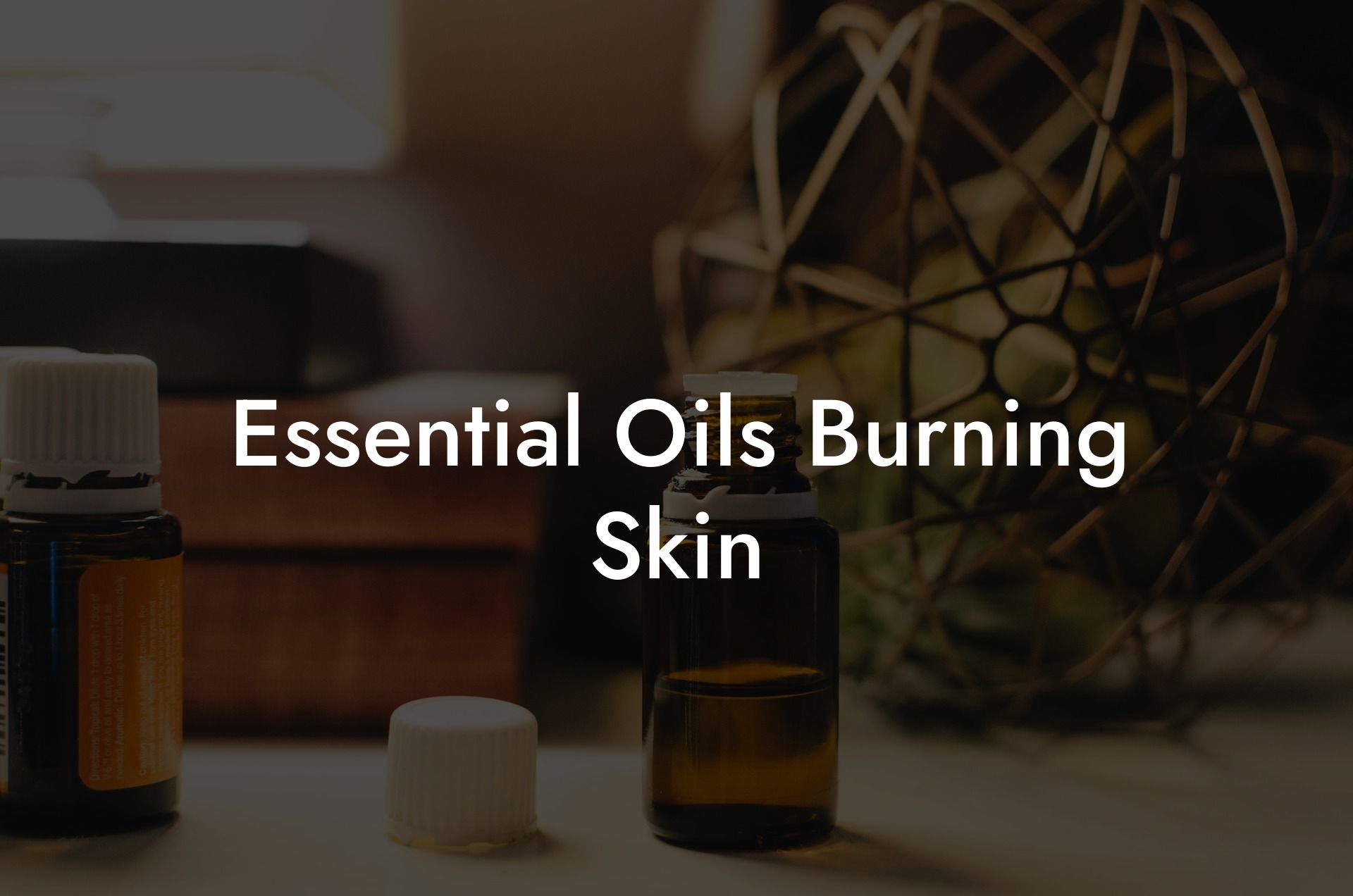Have you ever experienced skin irritation or a burning sensation after applying essential oils? This is a not-so-rare issue faced by many when using these potent natural extracts. In this blog post, we will delve deep into the topic of essential oils burning the skin and discuss why it happens, prevention methods, and effective ways to treat it.
Table of Contents
Why Essential Oils Burn the Skin?
Essential oils are highly concentrated extracts obtained from various plant parts. They’re known for their powerful benefits, but their potency can also lead to skin irritation or burning sensations for some individuals. Several factors contribute to this issue:
1. Undiluted Essential Oils
Essential oils should never be applied directly to the skin without dilution. Undiluted essential oils can be too strong, causing a burning sensation or irritation due to their potency.
2. Allergy or Sensitivity to Specific Essential Oils
Some people may be allergic or sensitive to certain essential oils, and their skin reacts with redness, itching, or burning sensations upon contact.
3. Photosensitivity
Certain essential oils, such as citrus oils, are phototoxic, which means they can cause skin sensitivity or burns when exposed to sunlight. Applying these oils before sun exposure can increase the risk of sunburn or irritation.
How to Prevent Essential Oils-induced Skin Burning?
Here are some precautionary measures to avoid essential oil burns:
1. Dilute Essential Oils Before Use
Always dilute essential oils with a carrier oil (such as coconut, almond, or jojoba oil) before applying to your skin. A standard dilution ratio is 2% essential oil, which equates to about 12 drops of essential oil per ounce of carrier oil.
2. Perform a Patch Test
Before applying any essential oil blend to a larger area, perform a patch test by applying a small amount to a discreet area (like the inside of your wrist or elbow) and wait for 24 hours to check for any allergic reaction or irritation.
3. Be Aware of Photosensitive Oils
Do not apply phototoxic essential oils on skin exposed to sunlight. If you have applied a phototoxic oil, avoid sun exposure for at least 12 hours to reduce the risk of irritation or burns.
Essential Oils Burning Skin Example:
Imagine you have prepared an essential oil blend using lemon essential oil to help with stress relief and decide to apply it to your skin before going out on a sunny day. You apply the oil blend without diluting it first, and after some time in the sun, you start to feel a burning sensation on your skin where you applied the oil. You’ve now encountered a classic case of essential oils burning the skin!
In this situation, you should first cleanse the area and apply a soothing cream or aloe vera gel to help relieve the burning sensation. To prevent this in the future, always dilute essential oils with a carrier oil before application and avoid using phototoxic oils on sun-exposed skin.
Essential oils offer a plethora of incredible benefits for our mental, emotional, and physical wellbeing. By practicing caution and proper safety measures, you can safely enjoy the endless benefits they provide without the worry of skin irritation or burns. Share this article with friends and family to help them avoid essential oil burns too. For more insightful articles and guides on essential oils and aromacology, explore the Oshu Oils blog. Don’t forget to check out our expertly formulated range of essential oils and blends for all your aromatherapy needs at Oshu Oils.





















